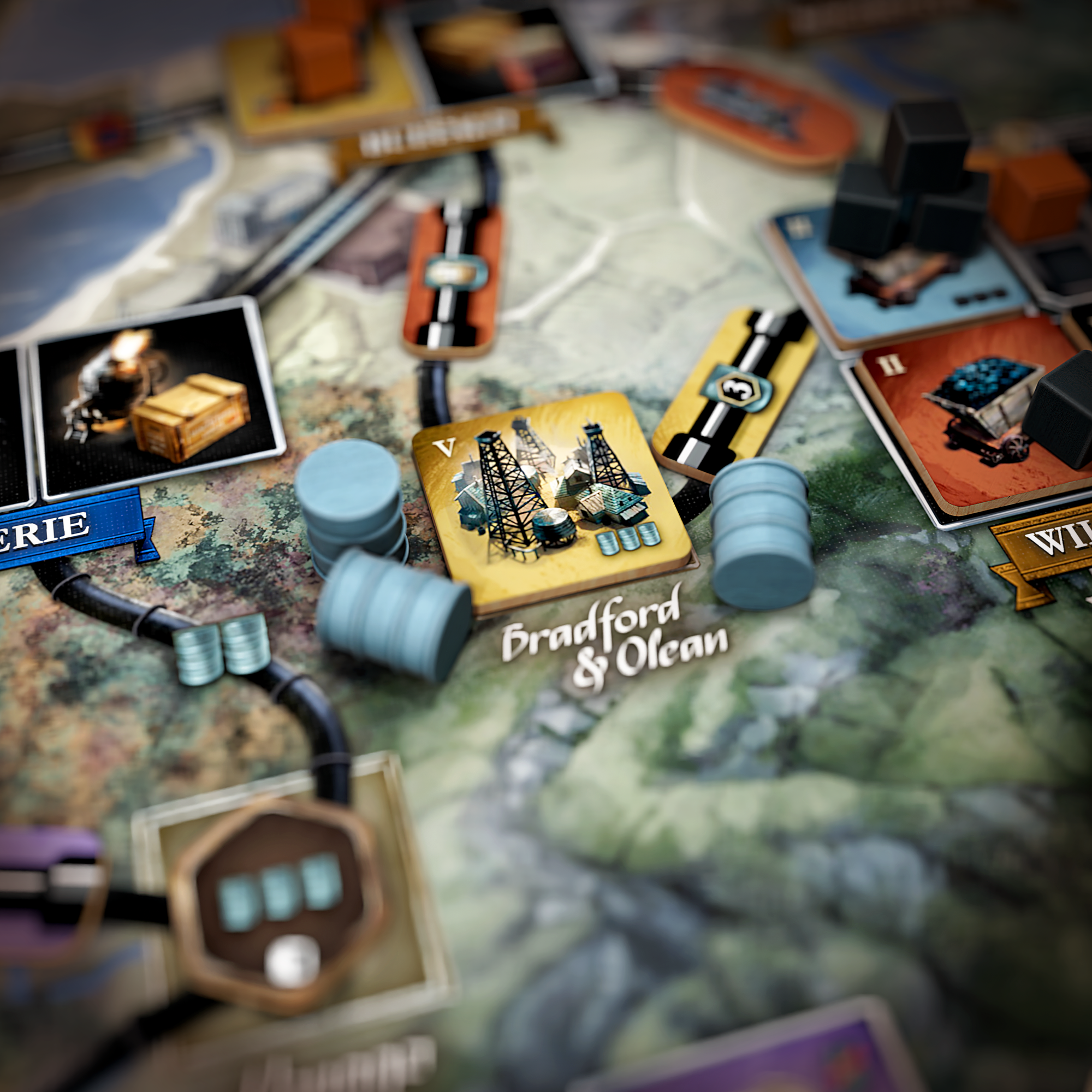As Andrew Carnegie and J.D. Rockefeller vie for the title of "richest man in the world", the resources that catapulted them there shape the face of America and Pittsburgh in the late 1800s. Steel becomes an ever more integral part of Brass:Pittsburgh as the game progresses and players upgrade their capacity for production and skyscrapers start dotting the board:
Bessemer Process Advancement: Your first steel mill will produce only 1 steel and 3 iron, but the revolutionary Bessemer process allows Carnegie to produce steel very cheaply and efficiently. As you advance your steel technology throughout the game, your steel mills produce much more by the end of the game, representing the massive industrial transformation that made steel abundant and affordable for the first time in history.
Skyscraper Construction: Advancing your steel technology also enables the construction of skyscrapers - the first of which was the Home Insurance Building in Chicago, completed in 1885. Skyscrapers represent one of the crown jewel industries that sit atop each industry track. They cost steel and lower your income due to the massive investment required to build them, but they give you a boatload of victory points as well as an immediate free sell action.
Steel Industry Evolution: Andrew Carnegie made steel cheap and abundant, enabling the rise of skyscrapers and modern industry. The steel track in Brass: Pittsburgh reflects this technological revolution, with players advancing from basic iron production to sophisticated steel manufacturing that unlocks entirely new construction possibilities.

Not do be outdone, Rockefeller literally thought he was on a mission from God to extract, refine, and distribute oil, wresting the title of "richest man in the world" from the Vanderbilts through 1901. Naturally, oil is a big deal in the game, representing what has come to be known as the "black gold rush":
Pipeline Prospecting Mechanism: Pipelines represent a completely new infrastructure type in the Brass system. You start with 2 pipelines and unlock more on your player board throughout the game. When you build a pipeline, you prospect one of the oil wells by flipping one of 5 randomly dealt oilfield tiles, which shows how much oil this well will produce over the first and second eras. The pipeline you build determines how much oil gets added to the well initially, creating a dynamic exploration system where players discover the value of oil reserves as they invest in them.
Oil Transportation Network: Oil travels in a unique two-stage system: first by pipeline, then by rail. This creates an interconnected network where pipeline owners benefit from all oil that flows through their infrastructure. The owner of a pipeline gains the reward on the pipeline for each barrel of oil that passes through it, regardless of who consumes the oil. This means strategic pipeline placement can generate ongoing revenue from other players' oil production and consumption.
Kerosene Refinement Industry: Rockefeller's primary product quickly became kerosene refinement, one of the core industries in Brass: Pittsburgh. Both kerosene and manufactured goods require a sell action to flip, and both require oil barrels as input. This creates a valuable supply chain from oil wells through pipelines to refineries, representing the integrated oil empire that made Rockefeller the most powerful industrialist of his era.
What's next?
Expect another reveal in a couple of weeks, and every other week leading into the crowdfunding launch! In the meantime, sign up on the Gamefound page and join the conversation!




















